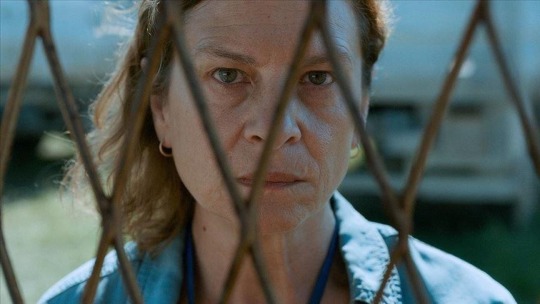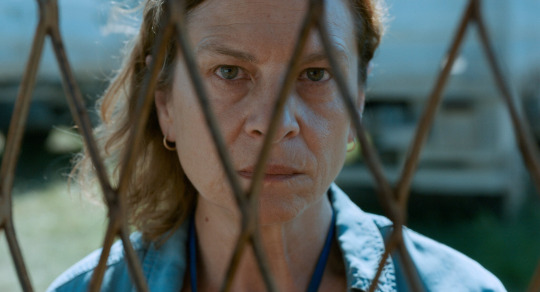#Dino Bajrovic
Explore tagged Tumblr posts
Photo

Recommendation of the week: Quo Vadis, Aida? (2020)
Dir.: Jasmila Žbanić
Cast.: Jasna Djuricic, Izudin Bajrovic, Boris Ler, Dino Bajrovic, Boris Isakovic.
Genre: War
Plot: Aida is a translator for the UN in the small town of Srebrenica. When the Serbian army takes over the town, her family is among the thousands of citizens looking for shelter in the UN camp.
Filmphilics score: 8/10
#quo vadis aida?#quo vadis aida#jasmila zbanic#jasna djuricic#izudin bajrovic#boris ler#dino bajrovic#boris isakovic#war#war film#war movie#cult movies#cult film#cult cinema#cinema#film#movie
11 notes
·
View notes
Text
Quo Vadis, Aida? - Review
Quo Vadis, Aida? – Review
The Bosnian War – the result of the break up of Yugoslavia amongst other issues – raged from April 1992 until December 1995. Ethnic cleansing was common practice, through either mass murder or forced expulsion. The Srebrenica Massacre of July 1995 saw more than 8,000 Bosniak Muslim men and boys lose their lives. Quo Vadis, Aida? charts the build up to this harrowing event, through the eyes of a…

View On WordPress
#Boris Isakovic#Boris Ler#Bosnian War#Dino Bajrovic#Female Director#International Cinema#Izudin Bajrovic#Jasmila Zbanic#Jasna Djuricic#Netflix#Oscar Nomination#streaming
3 notes
·
View notes
Photo

Quo vadis, Aida?, Jasmila Zbanic (2020)
#Jasmila Zbanic#Jasna Djuricic#Izudin Bajrovic#Boris Ler#Dino Bajrovic#Johan Heldenbergh#Raymond Thiry#Boris Isakovic#Emir Hadzihafizbegovic#Reinout Bussemaker#Teun Luijkx#Juda Goslinga#Jelena Kordic#Alban Ukaj#Christine A. Maier#Antoni Lazarkiewicz#Jaroslaw Kaminski#2020#woman director
1 note
·
View note
Text
Quo Vadis, Aida?

Dir. Jasmila Zbanic
War movies, almost by definition, tend towards either the macro or the micro: sweeping epics, or intimate confessions, but movies about war’s reverberations manage to be a bit of both. Jasmila Zbanic’s fact-based drama, about a UN translator, desperately trying to keep her husband and two sons from being taken by enemy troops during the Bosnian War, tells its harrowing story from the perspective of its protagonist, but always within the context of the thousands of other victims of Serbian strongman Slobodan Milošević.
The film also features a powerhouse performance from Jasna Djuricic as Aida, a Bosnian teacher, working as a translator for the combined UN forces under the auspices of Colonel Karremans (Johan Heldenbergh). When we first see them, the Colonel is formally meeting with the nervous mayor (Ermin Bravo) of Srebrenica, a small Bosnian city about to get swarmed over by Serbian troops. The Colonel assures him that the UN has issued an “ultimatum” to Serbian leaders about progressing any farther, or having to face a series of air strikes, wiping out their troops. The mayor, an anxious man, lets his feelings be known about the imminent danger facing his constituents, and demands some kind of promise from the Colonel. In response, the heavily mustachioed Karremans shrugs (“I’m just the piano player,” he says, very unreassuringly). The Mayor’s concerns prove entirely prophetic: The Serbs continue unabated, pouring into the outskirts of the city, and heavily bombing the place, while the terrified citizens head towards the only safe harbor they can: the UN-held encampment on the other edge of town.
Amongst those fleeing to the relative safety of the UN compound are Aida’s husband, Nihad (Izudin Bajrovic), and her two sons, college-aged Hamdija (Boris Ler), and high schooler Sejo (Dino Bajrovic). With many thousands left outside the compound gate, Aida manages to smuggle in her family, offering them at least a chance for safety. In this, she’s far luckier than most — throughout the film Srebrenicans, many of whom know her by name, implore her to help them in similar fashion — but it’s all she can do to keep her own family together.
Meanwhile, Srebrenica is taken over by the notorious Serbian General Mladic (here played by Boris Isakovic), an image-conscious sort of leader — he has a cameraman on him at all times, as a sort of personal documentor of his exploits — who quickly dispatches a bunch of troops to the UN site, where thousands of unprotected Bosnians wait for some sort of aid. Separating men from women and children, Mladic orders the latter whisked off to a faraway town in Bosnia, while systematically executing the men some 200 meters from the compound. Aida, in terror over her family, tries everything she can to keep them protected inside the UN facility, but when Colonel Karremans allows armed Serbians into the place (in order to “make certain” it’s not harboring any soldiers), things predictably fall into chaos.
If the film makes one point emphatically clear, it’s the toothless manner in which the UN (and, to be fair, much of the rest of the world) reacted to Serbian hostility, playing along and avoiding outright conflict — the promised airstrikes never happen, the Colonel is told because the UN “can’t afford to anger the Serbs” — and, in so doing, allowing Milošević’s troops to massacre and rape the Bosnians almost at will. Indeed, the UN’s utter uselessness is never better exemplified then when Mladic’s seasoned soldiers first arrive at the compound, and are met at the gate by a team of young, callow UN soldiers (mainly Dutchbats, without anywhere near the amount of firepower necessary to repel the Serbs), in sky-blue helmets, who, in their tank tops and khaki shorts, are no possible match against the grizzled forces before them. It’s like watching a group of camp counselors having to square off against the Huns.
Having exhausted all other methods of keeping her family from being expelled from the compound, and forced onto the waiting Serbian trucks, Aida literally gets down on her knees and begs a UN official to preserve them, but she is firmly denied (“We stick to the rules here,” he says, a statement so patently nonsensical, his mustache should catch fire). She watches helplessly as her family is pulled away from her and hustled onto a truck outside the compound.
It is that, coupled with growing sense of everyone else’s excruciating pantomime — for the benefit of either their legacy in history, or to protect their own conscience — that makes Zbanic’s film so gallingly effective. The General will claim no harm will come to civilians, when he knows full well he intends on massacring them; the Colonel will stand by his edict of following the rules, even as his world crashes all around him; and, the UN will make threats of force that they have no intention of carrying out. All of them denying the reality that is staring everyone in the face. In Zbanic’s film, it may be this sort of PR game for these world leaders, but not so for the ordinary citizens in these conflicts, who have to live with the grief and misery of these decisions for the rest of their lives.
#sweet smell of success#ssos#piers marchant#film#movies#jasmila zbanic#bosnian war#UN#Serbia#Slobodan Milošević#Jasna Djuricic#boris ler#war#politics#eastern europe
12 notes
·
View notes
Text
0 notes